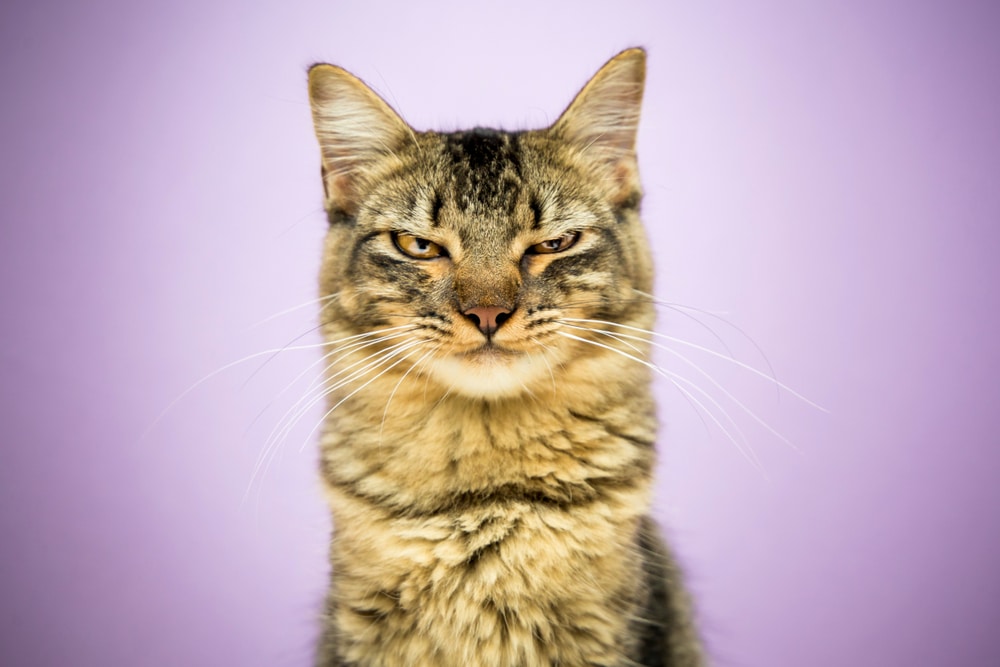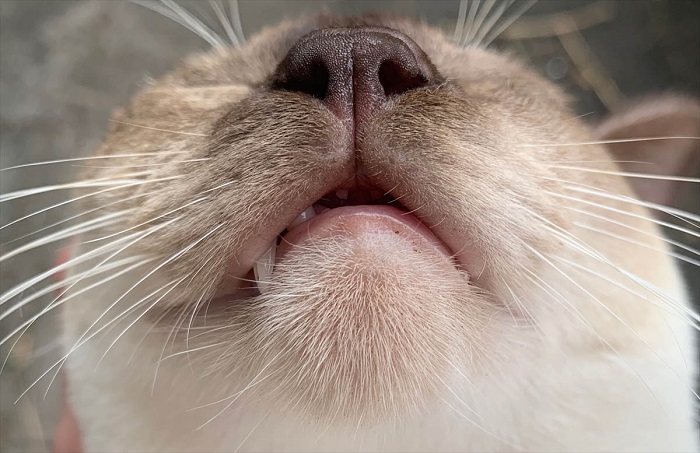Having a black chin is a common issue among cats that can be a cause of concern for many cat owners. While it may seem like a purely cosmetic problem, a black chin can indicate an underlying health issue that needs attention. In this article, we will explore the possible causes of a black chin in cats and discuss effective treatment options.

Understanding the Causes
1. Feline Acne
Feline acne is one of the most common causes of a black chin in cats. It is characterized by the presence of blackheads, pustules, and scabs on the chin area. The condition usually occurs when the hair follicles on the chin become clogged with excess sebum, dead skin cells, and bacteria. Feline acne can be triggered by various factors, including poor grooming, stress, allergies, and a compromised immune system.
2. Allergies
Allergies, both food and environmental, can also contribute to the development of a black chin in cats. Allergic reactions can cause inflammation and irritation of the skin, leading to the formation of blackheads and other skin issues. Common allergens for cats include certain foods, pollen, dust mites, and flea bites. Identifying and eliminating the allergen from your cat’s environment can help alleviate the symptoms.
3. Dermatitis
Dermatitis refers to the inflammation of the skin, which can result in a black chin in cats. Various factors can cause dermatitis, such as contact with irritants or allergens, fungal or bacterial infections, and hormonal imbalances. It is essential to identify the underlying cause of dermatitis to determine the most appropriate treatment approach.
4. Ringworm Infection
Ringworm, despite its name, is not caused by a worm but by a fungal infection. Cats can contract ringworm through contact with infected animals or contaminated objects. The infection typically presents as circular patches of hair loss, accompanied by redness, itching, and black discoloration. Prompt treatment is necessary to prevent the spread of ringworm to other pets or humans in the household.
Treatment Options

1. Proper Hygiene and Grooming
Maintaining good hygiene and grooming practices is crucial in managing a black chin in cats. Regularly cleaning your cat’s chin with a mild, hypoallergenic cleanser can help remove excess sebum and prevent the buildup of bacteria. Avoid using harsh soaps or human products, as they can further irritate the skin. Additionally, brushing your cat’s fur regularly can help distribute natural oils and prevent clogged hair follicles.
2. Topical Treatments
Topical treatments, such as medicated shampoos, ointments, and creams, can be effective in treating feline acne, allergies, and dermatitis. These products are specifically formulated to reduce inflammation, eliminate bacteria or fungi, and promote healing. It is crucial to follow the instructions provided by your veterinarian and monitor your cat’s response to the treatment.
3. Dietary Changes
In some cases, dietary changes may be necessary to address underlying allergies or sensitivities that contribute to a black chin in cats. Your veterinarian may recommend a hypoallergenic or limited-ingredient diet to identify and eliminate potential allergens from your cat’s food. It is essential to transition to a new diet gradually and monitor your cat’s response for any improvements.
4. Medications
If the underlying cause of a black chin in your cat is an infection or a severe allergic reaction, your veterinarian may prescribe medications to alleviate symptoms and promote healing. Antibiotics may be prescribed for bacterial infections, while antifungal medications can be effective against ringworm. It is crucial to complete the full course of medication as prescribed and follow up with your veterinarian as needed.
5. Environmental Management
If your cat’s black chin is caused by environmental allergies, managing the environment can be critical in reducing symptoms. Regularly vacuuming, using air purifiers, and minimizing exposure to known allergens can help alleviate your cat’s discomfort. Consult with your veterinarian for additional recommendations on creating an allergy-friendly environment for your cat.
Prevention Tips

Preventing a black chin in cats involves implementing certain measures to maintain good skin health. Here are some prevention tips:
-
Regular grooming: Brush your cat’s fur regularly to remove dead skin cells and distribute natural oils.
-
Clean feeding area: Ensure your cat’s food and water bowls are cleaned regularly to prevent bacterial growth.
-
Avoid plastic dishes: Opt for stainless steel or ceramic dishes that are easier to clean and less likely to harbor bacteria.
-
Monitor diet and allergies: Keep track of any food allergies or sensitivities your cat may have and avoid feeding them triggering ingredients.
-
Stress reduction: Minimize stressors in your cat’s environment to support a healthy immune system and reduce the risk of feline acne.
When to See a Veterinarian
If your cat’s black chin persists, worsens, or is accompanied by other concerning symptoms, it is essential to consult with a veterinarian. They can perform a thorough examination, conduct necessary tests, and provide a proper diagnosis. Early intervention is crucial in managing any underlying health issues and ensuring your cat’s well-being.
Conclusion
A black chin in cats can be indicative of various underlying causes, including feline acne, allergies, dermatitis, and ringworm infection. Understanding the root cause is essential in implementing the appropriate treatment options. By maintaining good hygiene, addressing any allergies, and seeking veterinary guidance when needed, you can help your cat regain a healthy and vibrant chin. Remember, a happy and healthy cat starts with proper care and attention to their overall well-being.
